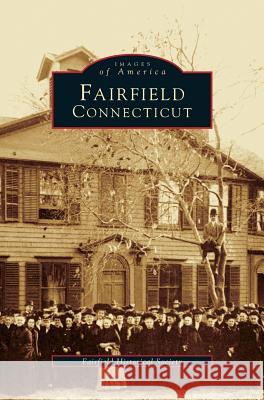Fairfield, Connecticut » książka
Fairfield, Connecticut
ISBN-13: 9781531623104 / Angielski / Twarda / 1997 / 130 str.
In the fall of 1639, Roger Ludlow, a founder of the colony of Connecticut, led a small group of men and a large herd of cattle to the shore of Long Island Sound, where they established a settlement that became known as Fairfield. With this exciting new photographic history, the members of the Fairfield Historical Society have created a unique look back in time. More than 200 rare photographs in this book document the dramatic changes that have occurred in Fairfield's landscape and population during the last 130 years of its 350-year history. Agriculture dominated Fairfield's economy from its founding to the mid-nineteenth century. With the rise of neighboring Bridgeport as an industrial center in the 1860s to 1920s, laborers and business owners moved to Fairfield, and the once-rural landscape was transformed into suburban home lots. Today the town's population is a vibrant mix of commuters, local business people, and young families.
In the fall of 1639, Roger Ludlow, a founder of the colony of Connecticut, led a small group of men and a large herd of cattle to the shore of Long Island Sound, where they established a settlement that became known as Fairfield. With this exciting new photographic history, the members of the Fairfield Historical Society have created a unique look back in time. More than 200 rare photographs in this book document the dramatic changes that have occurred in Fairfields landscape and population during the last 130 years of its 350-year history. Agriculture dominated Fairfields economy from its founding to the mid-nineteenth century. With the rise of neighboring Bridgeport as an industrial center in the 1860s to 1920s, laborers and business owners moved to Fairfield, and the once-rural landscape was transformed into suburban home lots. Today the towns population is a vibrant mix of commuters, local business people, and young families.











